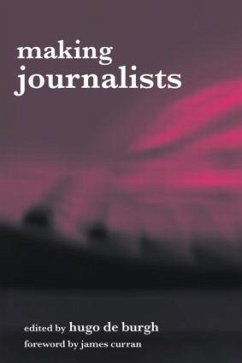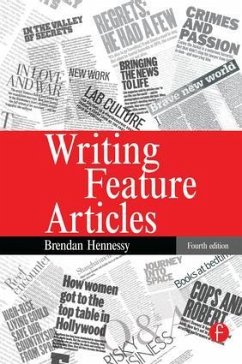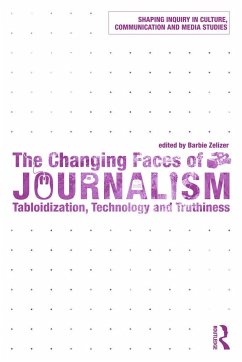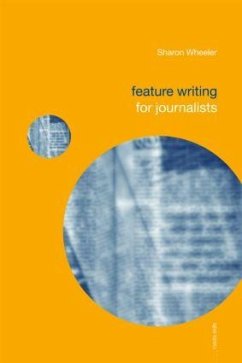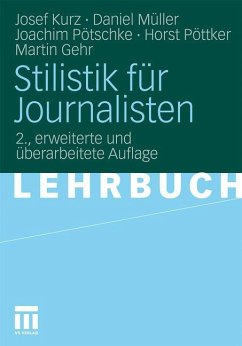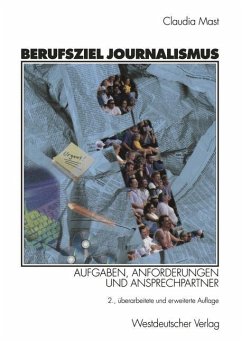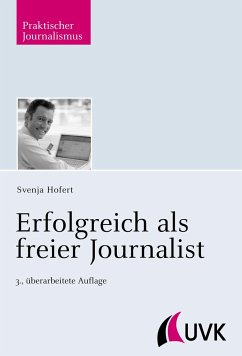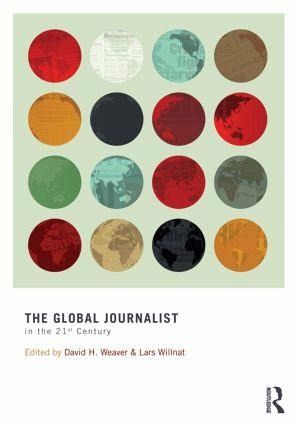
The Global Journalist in the 21st Century
Versandkostenfrei!
Versandfertig in 1-2 Wochen
100,99 €
inkl. MwSt.

PAYBACK Punkte
50 °P sammeln!
The Global Journalist in the 21st Century systematically assesses the demographics, education, socialization, professional attitudes and working conditions of journalists in various countries around the world. This book updates the original Global Journalist (1998) volume with new data, adding more than a dozen countries, and provides material on comparative research about journalists that will be useful to those interested in doing their own studies.The editors put together this collection working under the assumption that journalists' backgrounds, working conditions and ideas are related to ...
The Global Journalist in the 21st Century systematically assesses the demographics, education, socialization, professional attitudes and working conditions of journalists in various countries around the world. This book updates the original Global Journalist (1998) volume with new data, adding more than a dozen countries, and provides material on comparative research about journalists that will be useful to those interested in doing their own studies.
The editors put together this collection working under the assumption that journalists' backgrounds, working conditions and ideas are related to what is reported (and how it is covered) in the various news media round the world, in spite of societal and organizational constraints, and that this news coverage matters in terms of world public opinion and policies. Outstanding features include:
Coverage of 33 nations located around the globe, based on recent surveys conducted among representative samples of local journalists
Comprehensive analyses by well-known media scholars from each country
A section on comparative studies of journalists
An appendix with a collection of survey questions used in various nations to question journalists
As the most comprehensive and reliable source on journalists around the world, The Global Journalist will serve as the primary source for evaluating the state of journalism. As such, it promises to become a standard reference among journalism, media, and communication students and researchers around the world.
The editors put together this collection working under the assumption that journalists' backgrounds, working conditions and ideas are related to what is reported (and how it is covered) in the various news media round the world, in spite of societal and organizational constraints, and that this news coverage matters in terms of world public opinion and policies. Outstanding features include:
Coverage of 33 nations located around the globe, based on recent surveys conducted among representative samples of local journalists
Comprehensive analyses by well-known media scholars from each country
A section on comparative studies of journalists
An appendix with a collection of survey questions used in various nations to question journalists
As the most comprehensive and reliable source on journalists around the world, The Global Journalist will serve as the primary source for evaluating the state of journalism. As such, it promises to become a standard reference among journalism, media, and communication students and researchers around the world.





